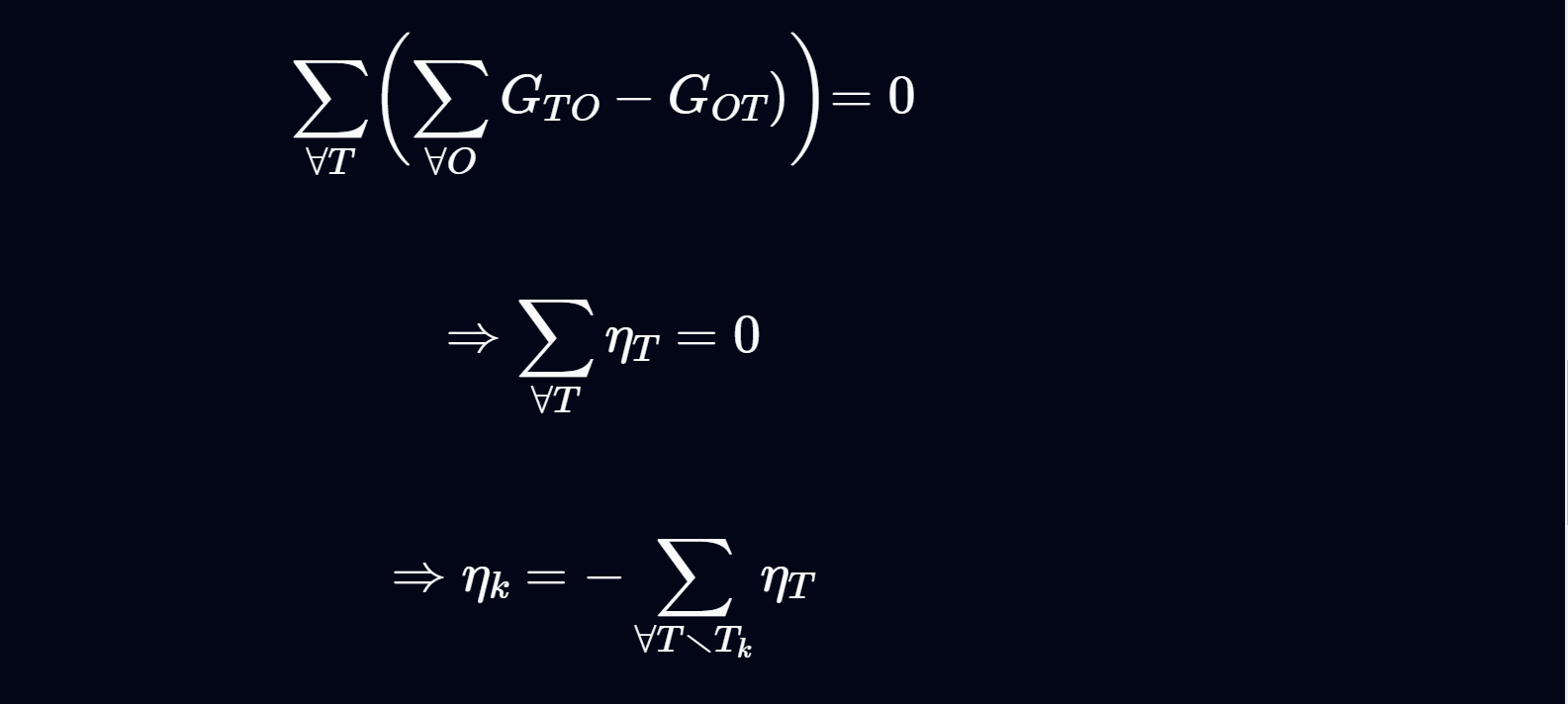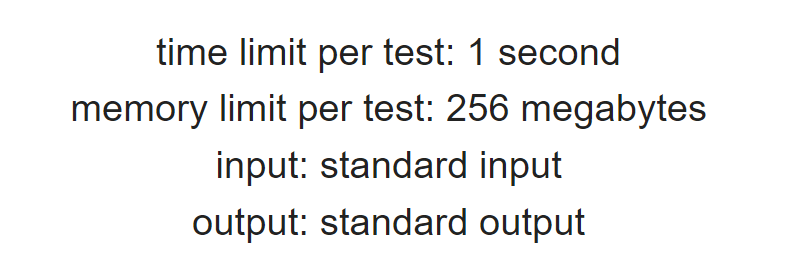I proved my algorithm AFTER my code got accepted - DSA
 __CPP__Try_Hard__
__CPP__Try_Hard__
( In the middle of my 4th semester Endsems right now ! So easy question today )
Question
Problem 1877 A - Goals of Victory
Problem Statement

Input and Output Formats

Time and Space Constrains

Sample testcases
Input
2
4
3 -4 5
11
-30 12 -57 7 0 -81 -68 41 -89 0
Output
-4
265
Intuition and Proof
Notice that each goal increases the efficiency of the team that scores by 1. But it also simultaneously decreases the efficiency of the opposite team by 1. This means, if we maintain the sum of efficiency for all teams, each goal does not change the sum. Therefore, the sum must be 0.
$$\sum_{\forall T}\biggl( \sum_{\forall O}G_{TO}-G_{OT}) \biggl) = 0$$
$$\Rightarrow \sum_{\forall T} \eta_T = 0$$
$$\Rightarrow \eta_{k} = -\sum_{\forall T \smallsetminus T_{k}} \eta_T$$
Algorithm
Find sum of all given Efficiency
Answer = -(sum)
Implementation
#include <iostream>
using namespace std;
typedef long long ll ;
int main(){
ios::sync_with_stdio(0); cin.tie(0);
ll t; cin >> t;
while(t--){
ll n,temp,s=0;cin >> n; n--; // they are giving n-1 inputs
while(n--){cin>>temp;s+=temp;}
cout << -s << "\n";
}
}
Proof was not Obvious to me but Intuition was
While I my solution got accepted in under a minute, I was still amused by the fact that I had no idea why it worked. It was only post competition and I sat down and spent some time that I understood why it was like that.
While it's awesome to solve problems fast with intuition, proving your algorithm is like adding a sturdy foundation to a cool treehouse. It ensures your solution works reliably in all situations, avoiding surprise hiccups or bugs down the road. Plus, it's like showing your work in math class—makes your answer more trustworthy and legit. So, take a moment to dot your i's and cross your t's. Your future self will thank you for the solid groundwork when your code's running smoothly, and you're cruising through those challenges like a pro!
Thank you,
__CPP_Try_Hard__ ;
Subscribe to my newsletter
Read articles from __CPP__Try_Hard__ directly inside your inbox. Subscribe to the newsletter, and don't miss out.
Written by

__CPP__Try_Hard__
__CPP__Try_Hard__
A Try Hard to the core ;